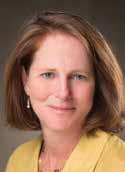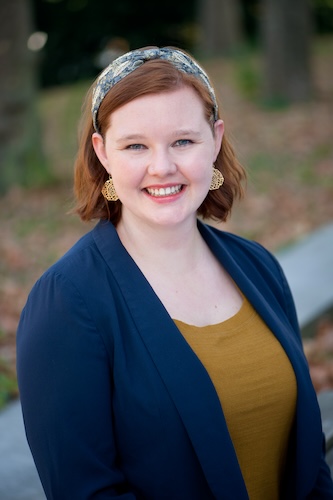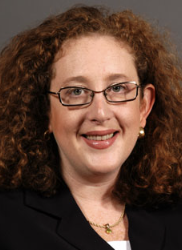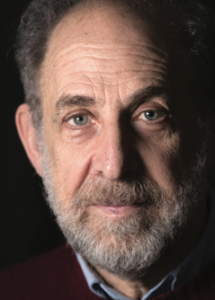Open Beit Midrash 5784/2023-24
Tuesday Evenings, December 7, 2023 to May 21, 2024
7:30-8:45pm
(Refreshments and Schmoozing 7:00-7:30pm)
Beit Midrash is a term given to the House of Text Study in the traditional Jewish community. Its atmosphere is fundamentally different from the secular educational schools with which we are generally more familiar. In universities, for example, classes are quiet and ordered, and in libraries the most focused study occurs in separate, private carrels. The Beit Midrash atmosphere, in contrast, is energetic, even boisterous. Students often sit around tables, and the physical proximity encourages them to listen, share, argue and imagine together.
What explains the passion and intensity of the Beit Midrash?
Jewish text study comes primarily not from intellectual interest, but from a love affair. From Sinai, 3300 years ago, Jews have been drawn to the study of the Torah and other sacred writings because these addressed their most important questions about life. Just as we learn about ourselves in our intimate, loving personal relationships, so study of texts helps us to discover who we want to become. As in all relationships of love, the connection to the texts is marked by reflection, unpredictability, struggle and joy.
By exploring Jewish literature of all ages, Open Beit Midrash illuminates key moral and spiritual challenges which we face today. This year, we will study questions as old as violence in the name of religion and as new as depictions of Jews in Hollywood sitcoms. Along the way, students will encounter classical Biblical, Rabbinic, and early Christian texts, as well as ancient Egyptian, Greek and Roman works, Kabbalah, Chasidim, and contemporary feminist Midrash.
Open Beit Midrash is for learners of all levels. We value diversity. Come whether you have studied Jewish texts for twenty years or are a complete novice. All texts are studied in English translation. Open Beit Midrash is held almost every Tuesday evening, 7:30-9:30pm, from December 7, 2023 to May 21, 2024. The sessions will be either in person or online, depending on the public health situation, and registrants will be advised as we get closer to the course dates. Whether in person or virtual, we will offer a time for social gathering from 7:30-8:00pm, and then the course session from 8:00-9:30pm.
While the program is drop-in and you may attend as much or as little as you like, please consider the full 18-week program, in order to appreciate the journey and growth of Jewish wisdom from Sinai to the 21st Century. As detailed below, we offer a subscription option which enables you to attend all of the sessions for the year.
Cost: $56 per three-week course for members and $72 for non-members per three-week course
Scholarships are available; please contact Rabbi Michelle Dardashti or Luka Dubnick for more information.
Registration for Open Beit Midrash will open shortly!
For more info, call the Synagogue office at (718) 875-1550.
For more general information, if you’d like to volunteer for the Beit Midrash committee, or would like to suggest a course, contact [email protected].
~ Courses ~
Thursdays, December 7–21
Finding Light in the Darkness: Hanukkah and the Persistence of Hope
with Dr. Andrea Lieber
Chanukah celebrates the unlikely victory of a tiny band of rebels over a powerful empire, a counter-cultural fight for religious freedom, and the miracle of a flame that refuses to be extinguished. In this three-part series, we will revisit the classical sources that shaped our understanding of this often-misunderstood holiday. Our goal is to find new meaning in this ancient story and fresh inspiration to guide us through challenging times. Our three classes will discuss: 1) Defining the struggle, 2) Who is a hero?, 3) Re-dedication—bringing the community together
Tuesdays, January 9–23
The Forbidden Torah: A Feminist Exploration of Selections from Tosefta Sotah
with Rabbi Margo Hughes-Robinson
The figure of the sotah, the suspected wife, is a controversial one in rabbinic literature. Join Rabbi Margo Hughes-Robinson for a three-part deep dive into the heart of an ancient discussion of gender, power, and Jewish understandings of sin. Together, we’ll bring the 2nd century texts of the Tosefta into conversation with contemporary feminist theory, classical theology, and our own experiences, to discover the contrasting values hidden under the surface of this ancient and troubling text. No Hebrew experience necessary—Rabbi Hughes-Robinson will bring texts from her own forthcoming English translation of Tosefta Sotah.
Tuesday, January 30–February 13
Wild Stories from the Wilderness: A Close Study of Selections from Bamidbar
with Rabbi Dr. Barat Ellman
(description forthcoming)
Tuesdays, February 20-March 5
The Fiction of S.Y. Agnon
with Rabbi Dr. Ray Scheindlin
S.Y. Agnon (1887 to 1970) was unusual among Israeli writers of his generation in that his work is deeply grounded in Jewish tradition while at the same time giving voice to a troubled modern sensibility. His mature work combines a powerful nostalgic turn toward the traditional, religious past with the skeptical outlook of an alienated modern man. Behind the voice of a pious old- timer, we hear intimations of Kafka.
Agnon is generally considered the leading writer of Hebrew fiction during the first two-thirds of the twentieth century. In Israel, his works are considered classics. Yet, despite his receiving the Nobel Prize, and though most of his work has now been translated into English, he does not enjoy wide readership in America. Over the more than forty years during which I have been holding a story session on the afternoons of Yom Kippur at Kane St., I have read and discussed Agnon stories probably a dozen times. This course will provide background about his life and career and an opportunity to examine the larger significance of his enormous body of work.
In each of the three sessions, we will read and discuss one or two of Agnon’s short stories. In each session, we will also take up one of Agnon’s major novels.
Tuesdays, March 12-26
Artists’ Beit Midrash
with Rabbi David Greenstein, Ph.D
Rabbi David Greenstein, Ph.D., will be joining our Open Beit Midrash series. Rabbi Greenstein, a distinguished scholar of Zohar, will lead a captivating three-part Artists’ Beit Midrash. We will explore various ways that the Zohar, the central work of Jewish mysticism, tries to imagine and speak about the act of creation. The Zohar moves within, behind and beyond the usual picture of Creation as found at the beginning of Bereshit (Genesis). We will study texts that present a few ways to imagine and think about the act of creation – in visual terms, aural/verbal terms, and physical/biological terms.
The Jewish artist asks, how can I communicate my love of Judaism through my unique vocabulary? How can what I produce bring new and deeper meaning to texts and prayer? In class, we will engage with study materials in English, complemented by the original Hebrew. Participants are encouraged to create visual art, creative writing, poetry, dance, music, or photography outside of class that resonate with the material, and to bring them to class for thoughtful discussion. The first hour Rabbi Greenstein will teach. The second hour will be dedicated to discussion of the work that participants have created or otherwise brought in from outside the class. For the first session, participants are welcome to bring one example of their own creative work, or creative work that especially speaks to them.
Tuesdays, April 9 and 16, and Thursday, May 2
3 Brooklyn Rabbis, 5 Cups of Wine: A Journey Toward Redemption
with Rabbis Dardashti, Leener and Weinberg
Our Open Beit Midrash will continue in April with a fantastic three-part series. In preparation for Pesah, join Rabbi Dardashti and some rabbinic colleagues for an exploration of the five cups of wine at the Seder.
Tuesdays, May 7-21
Responses to Hurban
with Dr. Aaron Koller
While Jewish history has had many highlights, we have also unfortunately had our share of tragedies. Spanning across many centuries, we will look at different ways in which Jewish thinkers and writers have responded to catastrophes. We will draw from biblical texts responding to the Babylonians’ destruction of the First Temple, Rabbinic texts after the Romans’ destruction of the Second Temple, chroniclers and leaders writing in the shadow of the Crusades, and poets and philosophers of the twentieth century – prior to the Shoah. We will see some of the ways that responses to the Holocaust drew on this long history, and other ways in which the destruction of European Jewry broke the mold and forced thinkers of the past 75 years to react differently than their predecessors did.
~ Faculty ~
 Dr. Rabbi Barat Ellman (Jewish Theological Seminary of America, ’04, ’11) is a scholar of Hebrew Bible. Her areas of research interests include: biblical religion and theology, the social world reflected in the Bible, and ways to draw upon biblical material in contemporary social justice work. She is the author of Memory and Covenant: The Role of Israel’s and God’s Memory in Sustaining the Deuteronomic and Priestly Covenants (Fortress, 2013).
Dr. Rabbi Barat Ellman (Jewish Theological Seminary of America, ’04, ’11) is a scholar of Hebrew Bible. Her areas of research interests include: biblical religion and theology, the social world reflected in the Bible, and ways to draw upon biblical material in contemporary social justice work. She is the author of Memory and Covenant: The Role of Israel’s and God’s Memory in Sustaining the Deuteronomic and Priestly Covenants (Fortress, 2013).
A Wexner Graduate Fellow and a member of Phi Beta Kappa, Rabbi Dr. Ellman is an adjunct assistant professor of Theology at Fordham University and on the faculty of the Bard Prison Initiative. In addition to her academic positions, Rabbi Dr. Ellman is actively involved in social justice work with organizations such as Jews for Racial and Economic Justice (JFREJ); T’ruah: the Rabbinic Call for Human Rights; Just LeadershipUSA; and New Sanctuary Coalition.
______________
 Rabbi Margo Hughes-Robinson is passionate about co-creating an equitable and just world through deep relationship and inspired action. She was ordained by the Jewish Theological Seminary in 2021, where she also earned an MA in Midrash and served for two years as the Program Coordinator of the Milstein Center for Interreligious Dialogue. While in rabbinical school Margo served a number of communities and organizations, including as a Marshall T. Meyer Fellow at B’nai Jeshurun and as a T’ruah Israel Fellow in 2018. She holds a BA in Jewish Studies and Theatre from Clark University, and enjoys writing, making music, and exploring kosher Cajun recipes. She lives in Brooklyn with her wife and their son.
Rabbi Margo Hughes-Robinson is passionate about co-creating an equitable and just world through deep relationship and inspired action. She was ordained by the Jewish Theological Seminary in 2021, where she also earned an MA in Midrash and served for two years as the Program Coordinator of the Milstein Center for Interreligious Dialogue. While in rabbinical school Margo served a number of communities and organizations, including as a Marshall T. Meyer Fellow at B’nai Jeshurun and as a T’ruah Israel Fellow in 2018. She holds a BA in Jewish Studies and Theatre from Clark University, and enjoys writing, making music, and exploring kosher Cajun recipes. She lives in Brooklyn with her wife and their son.
______________

Dr. Aaron Koller is professor of Near Eastern Studies at Yeshiva University, where he studies Semitic languages. He is the author of Unbinding Isaac: The Significance of the Akedah for Modern Jewish Thought (JPS/University of Nebraska Press, 2020) and Esther in Ancient Jewish Thought (Cambridge University Press, 2014), among other books, and the editor of five more. Aaron has served as a visiting professor at the Hebrew University in Jerusalem and held research fellowships at the Albright Institute for Archaeological Research and the Hartman Institute. In 2022-2023 he will be a Bye-Fellow at Cambridge University and a Visiting Scholar at the Centre for Hebrew and Jewish Studies at Oxford. He lives in Queens, NY with his partner, Shira Hecht-Koller, and their children.
______________
 Dr. Andrea Lieber is Professor of Religion at Dickinson College, where she holds the Sophia Ava Asbell Chair in Judaic Studies. She received her PhD from Columbia University and her BA from Vassar College. She is the author of The Essential Guide to Jewish Prayer and Practices (Alpha Books/Penguin 2012). Her scholarly essays have appeared in The Jewish Quarterly Review, The Journal of Religion, College English, and many edited anthologies. Her courses at Dickinson cover a wide range of topics from classical through contemporary Judaism, with a special interest in mysticism, gender studies, and environmentalism. Her current research focuses on the intersection of gender, technology, and religion.
Dr. Andrea Lieber is Professor of Religion at Dickinson College, where she holds the Sophia Ava Asbell Chair in Judaic Studies. She received her PhD from Columbia University and her BA from Vassar College. She is the author of The Essential Guide to Jewish Prayer and Practices (Alpha Books/Penguin 2012). Her scholarly essays have appeared in The Jewish Quarterly Review, The Journal of Religion, College English, and many edited anthologies. Her courses at Dickinson cover a wide range of topics from classical through contemporary Judaism, with a special interest in mysticism, gender studies, and environmentalism. Her current research focuses on the intersection of gender, technology, and religion.
______________
 Dr. Raymond Scheindlin is professor emeritus of medieval Hebrew literature at the Jewish Theological Seminary and the author of books and academic studies of the subject. He is also active as a translator from Hebrew, having published a verse translation of the Book of Job and translations of other works, both literary and academic. He has been associated with the Kane Street Synagogue since 1974, serving as part-time rabbi from 1979 to 1982. In addition, for over forty years, he served as High Holiday Cantor and continues to lead a Yom Kippur study session.
Dr. Raymond Scheindlin is professor emeritus of medieval Hebrew literature at the Jewish Theological Seminary and the author of books and academic studies of the subject. He is also active as a translator from Hebrew, having published a verse translation of the Book of Job and translations of other works, both literary and academic. He has been associated with the Kane Street Synagogue since 1974, serving as part-time rabbi from 1979 to 1982. In addition, for over forty years, he served as High Holiday Cantor and continues to lead a Yom Kippur study session.
His books include: Wine, Women, and Death: Medieval Hebrew Poems on the Good Life (1986); The Gazelle: Medieval Hebrew Poems on God, Israel, and the Soul (1991); A Short History of the Jewish People (1998); The Book of Job (1999); and The Song of the Distant Dove: Judah Halevi’s Pilgrimage (2008). His most recent book is Vulture in a Cage: Poems by Solomon Ibn Gabirol, which appeared in 2016. More information about his books and a selection of his informal essays are available on his website, raymondscheindlin.com
______________